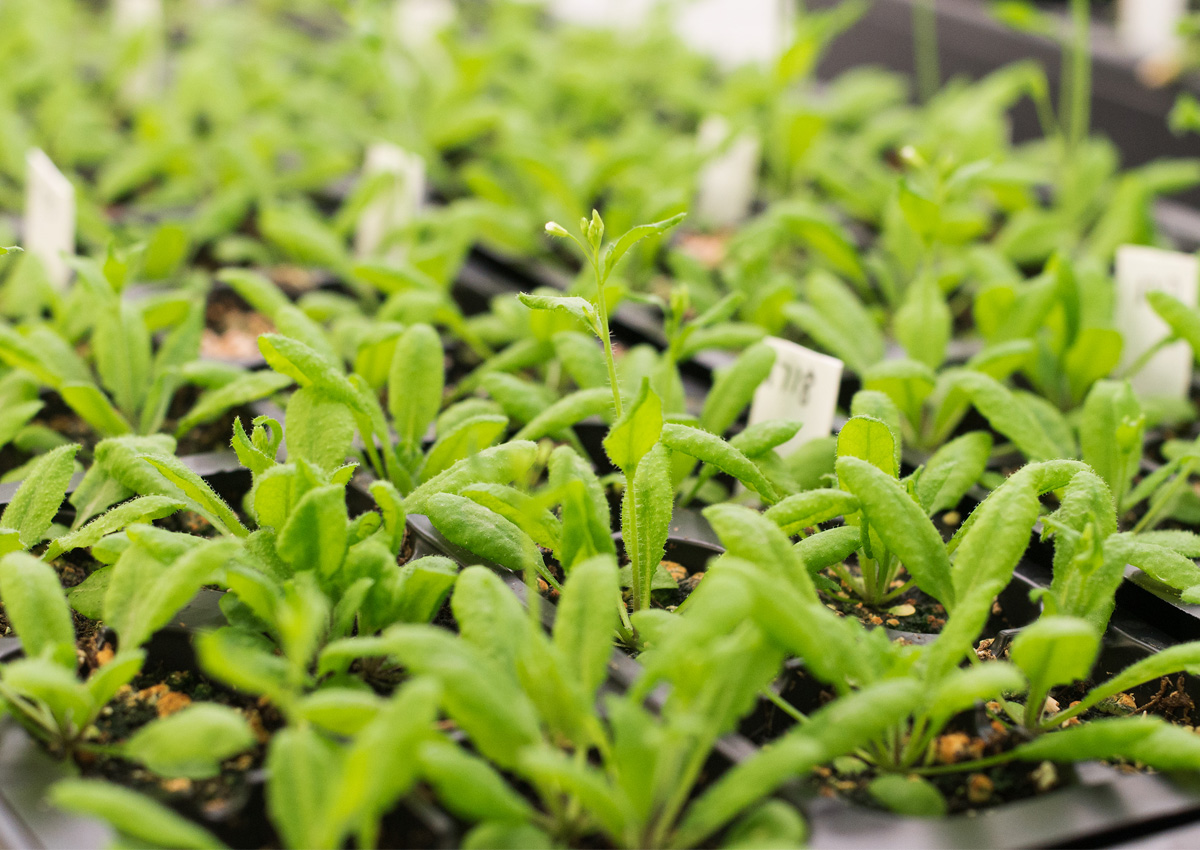
Researchers Identify Genes that Tell Plants when to Flower
July 8, 2020| |
Researchers at Martin Luther University Halle-Wittenberg (MLU) have identified two genes that are key to how plants know when to flower. The researchers were able to show that the ELF3 and GI genes control the internal clock of plants that monitors the length of daylight and determine when it is the right time to flower.
In this study, the MLU research team wanted to understand which genes control a plant's internal clock, thereby influencing the flowering process. They did this by investigating two genes that were already known to play a crucial role in the circadian clock: ELF3 and GI. The two genes have been studied separately, but the researchers wanted to understand how they work together and how they jointly influence the circadian clock, for example by regulating when a plant flowers.
The team investigated how the two genes functioned in Arabidopsis thaliana. The scientists bred plants with various genetic defects. In one group, the ELF3 gene was defective, in the second group it was the GI gene. In the third group, both genes were switched off. The researchers then observed how the plants reacted to different periods of light and found that when one of the two genes was defective, the plants' circadian clock still functioned on a rudimentary basis. When both genes were switched off, the plant does not react at all. "The plants could still perceive the light, but they could no longer tell how long the light lasted. This explains why the mutants with the double gene defect produced flowers at the same time under different lengths of light period," says Dr. Usman Anwer from the Institute for Agricultural and Nutritional Sciences at MLU.
For more details, read the article on the MLU website.
| |
You might also like:
- Flowering Mechanism in Brassica rapa Leafy Vegetables Now Revealed
- CRISPR-Cas9-mediated Mutagenesis of GmFT2a and GmFT5a Improves Adaptability of Soybean
- Overexpression of OsFTL10 Induces Early Flowering Improves Drought Tolerance in Rice
Biotech Updates is a weekly newsletter of ISAAA, a not-for-profit organization. It is distributed for free to over 22,000 subscribers worldwide to inform them about the key developments in biosciences, especially in biotechnology. Your support will help us in our mission to feed the world with knowledge. You can help by donating as little as $10.
-
See more articles:
-
News from Around the World
- ISF Urges Governments to Continue Facilitating Seed Movement without Restrictions under COVID-19 Pandemic
- Local Investors Challenged to Support Genome Editing Start-ups in Africa
- Comparison Between GM and Non-GM Maize Shows No Difference in Composition, Agronomic Traits
- Plant Tissue Engineering Improves Drought and Salinity Tolerance in Arabidopsis
- 92% Cotton, 90% Corn Areas in the US Produced with GE Seeds
- Researchers Identify Genes that Tell Plants when to Flower
-
Research Highlights
- New Potato Breeding Marker for Tuberization Identified
-
Plant
- Scientists Use TALENs for Targeted Genome Editing of Potato
-
Health
- Most Americans Supportive of Scientific Interventions to Stop COVID-19, 72% Willing to Get Vaccinated
- Genes Linked to COVID-19 Risk Inherited from Neanderthals
-
Read the latest: - Biotech Updates (December 17, 2025)
- Gene Editing Supplement (December 17, 2025)
- Gene Drive Supplement (February 22, 2023)
-
Subscribe to BU: - Share
- Tweet

